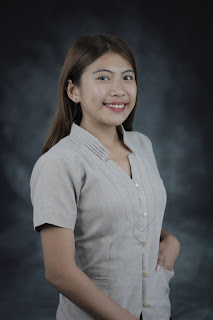EFFECT OF PHILOSOPHY IN EDUCATION and EFFECT OF EDUCATION ON PHILOSOPHY
Education and philosophy has a close relationship because philosophy is a view of life that leads to the goal of education (Isriyah & Lasan, 2018). According to Dewey, changes that occur in society must exist and inevitable because education is always changing.
As for philosophy's interaction with education, at least two things can be said:
1) The education of philosophy involves learning the discipline or methods of formal philosophical reasoning, and often the history of philosophy as well.
2) The philosophy of education involves teachers or educators thinking through why they teach, how they teach, why they teach the way they do, and what aspects of their role as educator are prioritized above others. Many teachers have the intrinsic worth of the student as a person in mind when they decide how they will prioritize their duties.
In short, philosophy is an essential component of education in any subject, and you don't have to be a philosopher to have a philosophy.
References:
"Define Philosophy, and explain its importance in education? Also explain how education and philosophy are interrelated? I need detailed answers to these questions! Please help me out!" eNotes Editorial, 14 Aug. 2016, https://www.enotes.com/homework-help/define-philosophy-explain-its-importance-education-120969. Accessed 30 Jan. 2021.
Isriyah, M., & Lasan, B. B. (2018, March 15). Classical philosophy: influence the education philosophy of age. ResearchGate. https://www.researchgate.net/publication/323936272_Classical_philosophy_influence_the_education_philosophy_of_age#:%7E:text=Education%20with%20philosophy%20has%20a,to%20the%20goal%20of%20education.&text=The%20perennialism%20view%20at%20the,and%20achieve%20its%20goals%20rationally.
CONCEPTS OF EDUCATION
PHILOSOPHICAL
The purpose of education is to impart knowledge. A teacher is also a role model for the students. Many experts are of the opinion that we need to treat students as guests or customers. In any case, the teacher's main goal is to make his or her lecture more predictive at the end of the session. If we follow this principle, our teaching will be eٹcient, and it is the philosophy behind the direct contact classes. As we are aware, a pleasant and attractive teaching method will always be successful in this society.
PSYCHOLOGICAL
Teachers need to understand the basic psychology of the whole group of students in a class and also individual students. We are in the era of personalized medicine, so we know the learning capability diوٴers from one individual to another. Also, the mood of students, as a group, varies with the season, climate, time, sessions, etc., so teachers should understand this basic philosophy. Teachers should also know about the general behavioral attitude of individual students. Нus, teachers have to handle classes to the students through this psychological tool. Motivation and periodical counseling to students will provide eوٴective results.
SOCIOLOGICAL
Understanding of students on social perspectives is essential in our society. We have different societies, regions, and cultures. Although there are differences between the teaching styles practiced in developed countries versus developing countries, teaching fundamentals are the same. Teachers need to determine, either directly or indirectly, the social status of their students. Some students work part-time; students may be from diوٴerent backgrounds (poor, rural or remote areas, etc.).
SCIENTIFIC
From a scientific point of view, audio-visual methods of teaching are always interesting for students. Good power point presentations, legible and with colors that are easy on the eyes, can enhance students' understanding. In conclusion, a teacher is like an architect who builds the future of students. For successful, quality education, a teacher should handle all the methods that help students have a proper education to lead a prosperous life.
REFERENCE:
Thatha Gowder, S. J. (2016). Philosophical, Psychological, Sociological and Scientific (PPSS) Basis of Teaching for University Health Sciences Students. Journal of Health Education Research & Development, 04(01), 1–2. https://doi.org/10.4172/2380-5439.1000e123
QUESTIONS TO PONDER
1. What should be the correct concept of Education?
Education is a wide concept and process of acquiring and imparting knowledge. Education may come in different perspectives or views like philosophical, sociological, psychological and scientific.
2.What is the nature of Education?
The nature of education is mainly on survival. We need to learn skills and knowledge in order to survive in life. Education itself is undefinable, in a sense that education can be in any form or way.
3. What are the characteristics of Education?
Education is life-long process.
Education is dynamic.
Education is basic.
Education is life.
Education makes up everything.
Information provided above are the essentials in life of a teacher, student and even of a person. It is important to know and be familiarize with these things so that we can be a better individual. We also need these things so that we can attain personal and professional development. And we should take note that education does not end in the four walls of the classroom, education is part of our daily lives and it is a life-long process.

Comments
Post a Comment